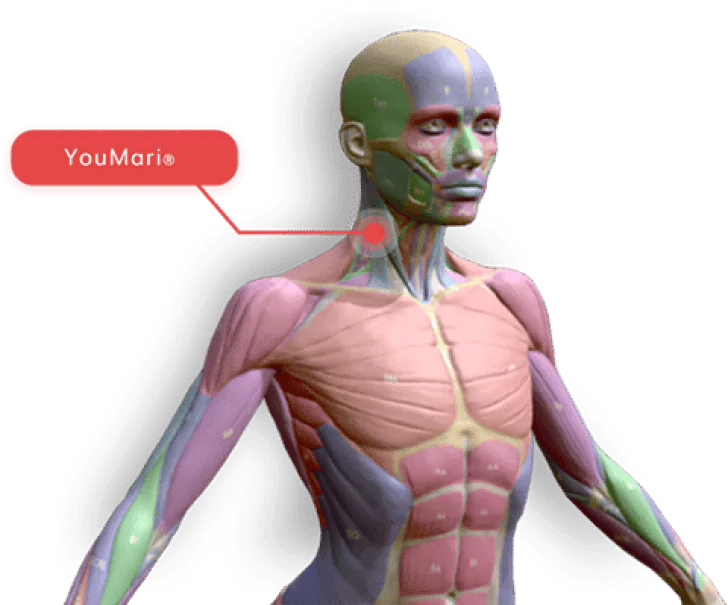Discover proven therapies and personalized solutions to enhance cellular health, reduce toxins, and build a foundation for long-term wellness—delivered in our clinics, at home, or onsite.
Cell health is the foundation of overall health and longevity. Healthy cells are essential for energy production, tissue repair, immune function, and preventing diseases. When cells are damaged by toxins, inflammation, or oxidative stress, they lose their ability to function optimally, accelerating aging and increasing the risk of chronic illnesses.
Prioritizing cellular health supports:


Cellular damage can result from various factors, including:
We take a comprehensive, integrative approach to improving cell health and reducing toxic burdens. By combining advanced regenerative therapies with evidence-based lifestyle interventions, and safely detoxifying cells, we address the root causes of cellular damage and empower your body to heal and thrive.

Experience hands-on care and advanced regenerative therapies in a relaxing, state-of-the-art environment.
Continue your healing journey with easy-to-use devices designed for at-home therapy.
Bring regenerative medicine to your workplace, improving employee health and productivity.
Our Regenerative Therapies our Not the Alternative, they are the
BEST CHOICE
We are committed to personalizing treatment plans based on what is best for every individual’s UNIQUE circumstances to include symptoms, budget, lifestyle, and goals. Conservative (non-pharmaceutical) care is often effective in resolving the symptoms of cellular health.

We will review your health history, symptoms, and current treatments to help determine the severity of your condition. We may recommend additional testing and analysis to get a full picture of potential therapies personalized to you.
If your condition qualifies for conservative care options, we will present a treatment plan that includes only those therapies proven to be effective in treating your condition. This may include red light therapy, hormone balancing, nootropics, testing for common brain-based viruses, addressing inflammation and other therapies to resolve issues that might be limiting mobility and ability to be active. You will be provided with treatment plan options and timelines with transparent out of pocket costs to you.

Cellular health is critical for longevity because it directly impacts how the body ages, repairs damage, and resists diseases. By maintaining optimal cellular function, you can:
Reduce the risk of chronic diseases like cancer, diabetes, and cardiovascular conditions.
Slow the aging process by preserving DNA integrity and mitochondrial function.
Enhance energy levels, resilience, and overall quality of life.
For more information, explore these trusted resources:
These are emerging treatments for various conditions, including brain fog. Here’s how they work:
It can play a major role in managing brain fog, particularly when hormonal imbalances are a contributing factor. Here’s an overview:
For Women: Bioidentical Hormone Replacement Therapy (BHRT) can help manage mood swings and depression, especially during menopause or perimenopause. Estrogen has mood-stabilizing effects and can influence neurotransmitter activity.
For Men and Women: Low testosterone levels can be linked to depression and mood disturbances. Testosterone replacement therapy may improve mood and alleviate depressive symptoms especially energy levels and the ability to focus.
Thyroid Imbalances: Hypothyroidism (low thyroid hormone) can contribute to depression. Proper thyroid hormone replacement can help stabilize mood and improve depressive symptoms.
Cortisol: Imbalances in cortisol, the stress hormone, can affect mood. Adrenal hormone therapy or stress management techniques can sometimes help in managing anxiety.
Dehydroepiandrosterone (DHEA): This hormone can affect mood and energy levels. Supplementation may be considered in cases of deficiency.
Overall, hormone therapy may be beneficial for some individuals with anxiety and depression, particularly when hormonal imbalances are a key factor. It should be considered as part of a comprehensive treatment plan.
Nutrigenomics examines how genetic variations affect individual responses to nutrients, allowing for personalized nutritional interventions that may support mental health.
Nutrigenomics can guide personalized dietary recommendations based on genetic profiles to improve mood and reduce symptoms of brain fog.
Pharmacogenomics studies how genetic differences influence individual responses to medications, enabling personalized treatment plans for depression and anxiety.
It helps tailor antidepressant and anxiolytic medications to individual genetic profiles, improving efficacy and reducing side effects.
Sleep Studies focus on improving sleep quality, which is crucial for mental health and can significantly impact depression and anxiety levels.
Improving sleep quality can enhance mood, reduce anxiety, and support overall mental health.
Inflammation Programs focus on reducing systemic inflammation through diet, supplements, and lifestyle changes, which can help alleviate symptoms of brain fog.
Reducing chronic inflammation through targeted interventions can improve mood and reduce symptoms of brain fog.
Red Light Therapy (or Low-Level Laser Therapy) uses specific wavelengths of light to reduce inflammation and support cellular function, which may benefit mental health.
Red light therapy may improve cellular function and reduce inflammation, potentially benefiting mood regulation and mental health.
Bioidentical Hormone Therapy involves using hormones identical to those naturally produced by the body to address hormonal imbalances that can affect mood.
Balancing hormones with bioidentical therapy can improve mood stability and potentially alleviate symptoms of depression and anxiety.
For Women: Bioidentical Hormone Replacement Therapy (BHRT) can help manage mood swings and depression, especially during menopause or perimenopause. Estrogen has mood-stabilizing effects and can influence neurotransmitter activity.
For Men and Women: Low testosterone levels can be linked to depression and mood disturbances. Testosterone replacement therapy may improve mood and alleviate depressive symptoms, especially energy levels and the ability to focus.
Thyroid Imbalances: Hypothyroidism (low thyroid hormone) can contribute to depression. Proper thyroid hormone replacement can help stabilize mood and improve depressive symptoms.
Cortisol: Imbalances in cortisol, the stress hormone, can affect mood. Adrenal hormone therapy or stress management techniques can sometimes help in managing anxiety.
Dehydroepiandrosterone (DHEA): This hormone can affect mood and energy levels. Supplementation may be considered in cases of deficiency.
Overall, hormone therapy may be beneficial for some individuals with anxiety and depression, particularly when hormonal imbalances are a key factor. It should be considered as part of a comprehensive treatment plan.
Environmental Toxins Tests assess exposure to environmental toxins, which can impact mental health.
Reducing exposure to environmental toxins may alleviate symptoms of depression and anxiety by minimizing their impact on overall health.
Shockwave Therapy (Extracorporeal Shock Wave Therapy) primarily targets musculoskeletal conditions but has shown potential in reducing inflammation and supporting mental health.
While primarily used for physical conditions, ESWT may help reduce inflammation and improve overall well-being, potentially supporting mental health.
For managing brain fog, these integrative and regenerative therapies offer diverse benefits:
These approaches can be integrated into a comprehensive treatment plan to address various aspects of brain fog, enhancing overall mental health and well-being.
Cellular health refers to the optimal functioning of the body’s cells, which is essential for energy production, repair, and disease prevention. Healthy cells are the foundation for longevity and overall wellness.
Cellular damage can result from various factors, including:
Toxins such as heavy metals, pesticides, and pollutants disrupt cellular processes by causing oxidative stress, damaging DNA, and impairing mitochondrial function.
PBM uses specific wavelengths of light to stimulate mitochondria, enhancing ATP production (cellular energy), reducing inflammation, and promoting cellular repair and function.
Hydrogen inhalation therapy delivers molecular hydrogen, a potent antioxidant that neutralizes free radicals, reduces oxidative stress, and supports cellular regeneration and repair.
N1O1 supplements boost nitric oxide production, improving blood flow, oxygen delivery, and nutrient transport to cells. This accelerates cellular repair by delivering essential resources for healing.
Nootropics optimize neurotransmitter activity, enhance mitochondrial efficiency, and reduce inflammation, improving brain function and contributing to cellular repair systemically.
Undiagnosed food sensitivities can cause chronic inflammation, impairing the body’s ability to heal and regenerate cells. Identifying and removing trigger foods reduces inflammation and supports cellular repair.
The gut microbiome is critical for nutrient absorption, immune regulation, and reducing inflammation. Optimizing gut health improves nutrient delivery to cells and reduces systemic inflammation.
Hormones regulate key cellular functions like metabolism, energy production, and repair. Balancing hormones such as cortisol, thyroid hormones, and estrogen restores cellular efficiency and healing capacity.
Oxidative stress occurs when free radicals outnumber antioxidants, leading to damage in cellular structures like DNA, proteins, and lipids, which impairs cell function and accelerates aging.
Therapies like hydrogen inhalation, guided detox programs, and personalized nutrition plans reduce the toxic burden on the body, support antioxidant activity, and restore cellular health.
Enhanced blood flow, supported by PBM and N1O1 supplementation, delivers more oxygen and nutrients to cells while efficiently removing waste products, accelerating repair and regeneration.
Yes, optimizing cellular health reduces inflammation, strengthens the immune system, and enhances the body’s ability to resist and recover from chronic diseases.
Lifestyle changes like a nutrient-rich diet, regular exercise, stress management, and quality sleep reduce inflammation, improve mitochondrial function, and protect cells from damage.
Chronic conditions increase inflammation and oxidative stress, impairing cellular function and slowing repair processes. Regenerative therapies counteract these effects to support recovery and resilience.
Sleep allows the body to regulate inflammation, produce growth hormones, and detoxify, all of which are critical for cellular repair. Addressing sleep issues accelerates healing and improves health outcomes.
Yes, combining therapies like PBM, H2 inhalation, N1O1 supplementation, and personalized nutrition creates a synergistic effect that addresses inflammation, oxidative stress, nutrient deficiencies, and hormonal imbalances.
Yes, all our therapies are non-invasive, clinically validated, and designed to enhance the body’s natural healing processes without harmful side effects.
While results vary, many patients notice improvements in energy, mental clarity, and overall well-being within 2–4 weeks. Long-term benefits develop with consistent treatment and lifestyle changes.
Book a consultation with our team to assess your health needs, identify barriers to cellular healing, and create a personalized plan incorporating advanced diagnostics and regenerative therapies.
See Plans & Pricing

Connect with us over our social platforms & find special deals for you!
© Copyright 2025. All rights reserved.